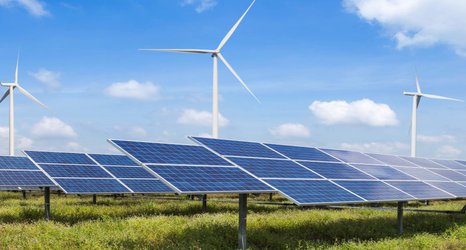UK green companies generate greater returns for clean energy investing


UK Yieldcos, firms that own renewable energy projects, are outperforming their US equivalents, according to new research from the Business School.
The Centre for Climate Finance and Investment found that low-carbon infrastructure investing could be financially attractive, with a portfolio of UK Yieldcos generating greater risk-adjusted returns than the broad equity market.
Over a three year period, UK Yieldcos have delivered an annual return of 8.09 percent which is comparable to the FTSE All-Share Index (8.23 percent), but with much lower volatility.
Yieldcos also help mitigate the impact of climate change by meeting the demand of investors who want to proactively participate in the transition from fossil fuels to renewable energy.
One of the key challenges of increasing capital flows from institutional investors to clean energy projects, such as wind or solar technologies, is the lack of a robust historical record of risk and financial return and this research aims to redress this.
"The findings have displayed a robust evidence about the risk-return profile of clean energy investing, with Yieldcos in the UK performing better than conventional energy." Dr Charles Donovan Director of the Centre for Climate Finance and Investment
Dr. Charles Donovan, Director of the Centre for Climate Finance and Investment at Imperial College Business School, said: “We’ve been developing a unique initiative focused on putting hard-nosed data behind renewables investment. This paper has sought to contribute to the evidence base about clean energy investing through a quantitative analysis of Yieldcos in North America and the United Kingdom.”
Dr Donovan added: “The findings have displayed a robust evidence about the risk-return profile of clean energy investing, with Yieldcos in the UK performing better than conventional energy. It is important to make the financial industry aware of the potential for sustainable energy infrastructure to be characterised as a unique asset class whose risk/return characteristics cannot be replicated from within a diversified investment portfolio; not least at a time when clean infrastructure investment is so prominent on the OECD and G20 agenda, ahead of the Buenos Aires Summit later this year.”
The report’s results have shown that the historical performance of Yieldcos strongly varies by geography. The US Yieldco portfolio consists of Yieldcos that rely heavily on their sponsor parents for asset “drop-down” and more aggressive use of leverage are characterized by higher volatility.
Meanwhile the Canadian Yieldco portfolio also had relatively high volatility but managed to compensate with higher annualized returns. In contrast, only the UK Yieldcos deliver on the promise of high risk-adjusted returns.
Dr. Donovan added: “I find the disparity between the US and UK fascinating. Both markets embarked down this green infrastructure path at the exact same time with the exact same idea. But here’s the rub, the US blew it. There has just been too aggressive an approach to structuring in the US and performance has suffered as a result.”
جدیدترین اخبار
Finding community in high-energy-density physics
MITx MicroMasters Program in Supply Chain Management reaches 1 million enrollments
School of Engineering third quarter 2022 awards
On campus, a warm welcome for MIT’s next president, Sally Kornbluth
Deep learning with light
MIT engineers develop sensors for face masks that help gauge fit
Sally Kornbluth is named as MIT’s 18th president

